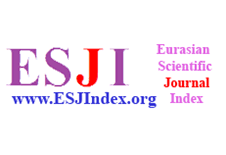COMPARATIVE STUDY OF WORD FORMATION METHODS IN ENGLISH AND UZBEK
Sayyoraxon Sodiqova
Kokand state pedagogical institute, teacher
Dilyorjon Solidjonov
Kokand university, Kokand Uzbekistan
Keywords: Word formation, English, Uzbek, comparative linguistics, derivation, compounding, suffixation, blending, reduplication, acronym formation.
Abstract
This study presents a comparative analysis of word formation methods in English and Uzbek, examining how linguistic structures and cultural influences shape each language. English, characterized by its diverse and hybrid vocabulary, employs various processes such as derivation, compounding, blending, clipping, and acronym formation. Uzbek, an agglutinative Turkic language, primarily relies on suffixation, compounding, reduplication, and borrowing. The study highlights unique features like Uzbek's extensive use of reduplication and English's frequent acronym formation. These differences reflect the distinct evolutionary paths and typological characteristics of the two languages. The findings contribute to comparative linguistics and have practical implications for language education, aiding in the development of effective teaching strategies.
References
Trousdale, G. (2024). Word formation change in Word Grammar: Two case studies. In Word Grammar, Cognition and Dependency. Cambridge University Press.
Bauer, L. (2020). Compounds and minor word‐formation types. The handbook of English linguistics, 463-482.
Axmadjonova, S. H. (2022). CHARACTERISTIC FEATURES OF WORD FORMATION OF A NEWSPAPER ARTICLE IN ENGLISH AND UZBEK LANGUAGES. Science and Innovation, 1(8), 155-159.
Xidirova, N. (2023). WORD FORMATION AND COMPOSITIONAL FEATURES OF ENGLISH AND UZBEK HOUSEHOLD TERMINOLOGY. Центральноазиатский журнал образования и инноваций, 2(5 Part 3), 227-229.
Turdimatova, M. (2021). SEMANTIC NOTION OF DIMINUTIVES IN THE FORMATION OF UZBEK AND ENGLISH. Журнал иностранных языков и лингвистики, 2(2).
Erkinova, M. (2023). PRINCIPLES OF FORMATION OF WORD GROUPS IN UZBEK LANGUAGE. Центральноазиатский журнал образования и инноваций, 2(12), 8-11.
Sokhila, Y. (2023). DISTINCTIVENESS NOMINAL PREFIXAL WORD FORMATION IN THE RUSSIAN AND UZBEK LANGUAGE. Open Access Repository, 4(2), 838-846.
Avyasova, I. (2024). FEATURES OF FORMATION AND FUNCTIONING OF ABBREVIATIONS IN RUSSIAN, UZBEK AND ENGLISH LANGUAGES. Science and innovation, 3(C3), 101-106.
Qo’chqorova, M. (2024). WORD FORMATION IN UZBEK AND ENGLISH LANGUAGES. Theoretical aspects in the formation of pedagogical sciences, 3(11), 61-65.

















